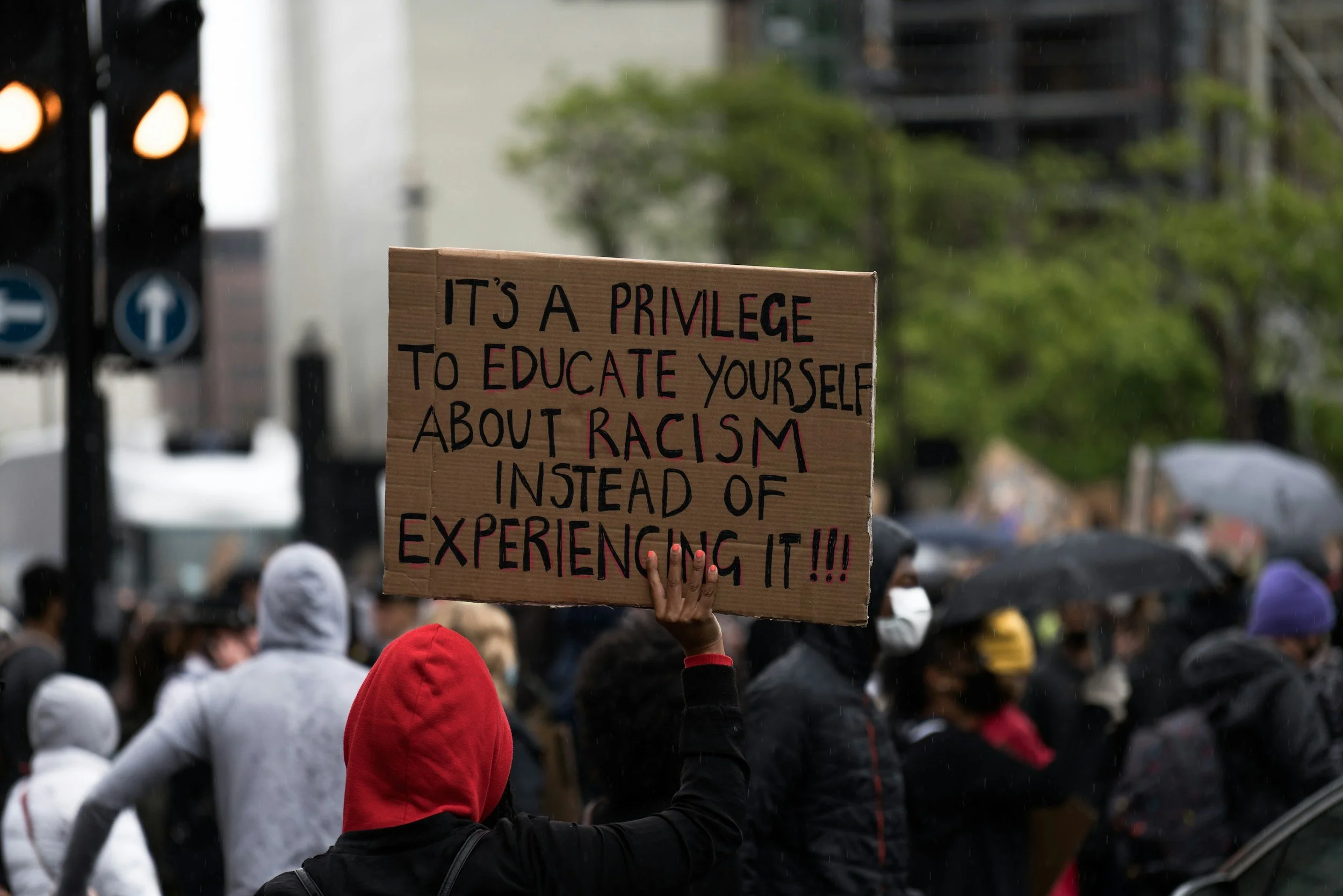What is trauma? By a Los Angeles Trauma Therapist
What counts as trauma?
This is a question I get asked a lot as a therapist specializing in trauma, especially since the word gets thrown around a lot.
The DSM-5-TR, which is the guide mental health professionals have to use to make diagnoses, defines trauma as exposure to actual or threatened death, physical injury, or sexual violence either by directly experiencing it, witnessing it, learning it happened to someone you are close to, or being exposed to details of such an event in a repeated and extreme way (for example, a first responder seeing dead bodies or an investigator hearing details of child abuse over and over).
This definition makes space for events like:
death
injury
natural disasters
motor vehicle or other accidents
“violent” sexual assault (more on this below)
medical trauma such a birth trauma or pregnancy loss
being the victim of a crime
physical abuse
sexual abuse
losing someone to suicide
combat or war
While this definition, and the list above, certainly describes trauma, most professionals who specialize in trauma believe it excludes many types of traumatic events, which is a fair and valid criticism.
I do want to note, I understand the desire and need to define what a trauma is. There must be a way to distinguish painful but normal life events, such as a breakup, from the more extreme, damaging effects of a trauma. That being said, this is a conversation that deserves nuance.
So what do I think is missing?
Emotional Abuse and Neglect
When we are children, our lives are literally dependent on the connection we have with our caregivers. It’s why babies have evolved to have such a piercing cry - it brings the parents to them to meet their needs! Evolutionarily speaking, humans have evolved to form a tight bond between child and parent because human babies are basically helpless compared to other species, and for a long time too! A close bond ensures parents are meeting their child’s needs for development and safety. When that bond is threatened, our brains experience it as life and death, because for children, it is. So when a child is emotionally abused or neglected, it is most certainly traumatic because it threatens safety and survival.
Even in adulthood, while we are capable of taking care of ourselves usually, our brains continue to receive emotional threats in the same way we receive physical threats. Additionally, often with emotional abuse there is an unspoken threat of physical harm - who knows when the person being emotionally abusive may cross the line into physical harm. Or perhaps they control access to resources and finances (such as when the person is your employer or a financially abusive family member or partner for example), which is most certainly related to physical safety and survival if you’re not independently wealthy or lack other resources. Not to mention, safety and connection in relationships is as much of a need as food and water.
Oppression: Microaggressions, Macroaggressions, and Safety
The DSM definition of trauma does not take into account systemic oppression, which intersectional and anti-oppression therapists like myself do. This is a common and fair criticism of the DSM. When you have a marginalized identity (poor, Brown/Black, ESL, female, trans or nonbinary, LGB or queer, non-Christian, disabled, fat, etc.), and especially if you hold multiple marginalized identities, you experience frequent macro and microaggressions that undermine safety. Macroaggressions include overtly discriminatory actions against an entire group, such as when Asian people were blamed for COVID-19 and resulted in an increase of hate crimes. Microaggressions are more common, subtle, and often not intended to be harmful, but are anyway. Examples include assuming a fat person doesn’t exercise or eat vegetables, that a woman doctor is an assistant or a women’s pain is just “in her head,” or that someone with an “ethnic” sounding name is not from the United States. Both microaggressions and macroagressions are harmful and gradually erode at a person’s mental and physical health overtime, a concept known as weathering.
These micro and macroaggressions often implicitly call safety into question. Sometimes, explicitly so. People who are marginalized are ALWAYS aware of potential threats to safety and never know if they will find themselves in danger because of someone else’s bigotry. Perhaps the best example of this in recent memory is the “man vs bear” debate in which women are asked if they’d rather encounter a bear or a man when alone in the forest. Most women chose the bear!
Other examples include a fat person always having to be on guard at healthcare appointments or when exercising in public, when a queer couple has to weigh safety vs showing affection in public, or when a person of color has to take precautions in case the white people they are dealing with decide to harm them or they have an encounter with law enforcement.
Having to live with this constant level of threat in the background impacts people in the same way the traumas above do, just on a more gradual, cumulative scale. Of course, some macroaggressions such as hate crimes escalate clearly into DSM trauma definition territory. But it is vital that we recognize systemic oppression as traumatic because it is.
Sexual Assault is Always Violent
Hey DSM, what exactly IS sexual violence? They do not specify and by adding the term “violence” it leaves it open to interpretation, implicitly suggesting that a sexual assault must include “violence” to count. But what does that mean?
Because as an EMDR and trauma therapist I’m here to unequivocally say that sexual assault that is quietly coercive can cause just as much PTSD as an assault with physically injurious force or the use of a weapon. Many times survivors even “go along with” the assault to try to protect themselves and minimize harm, but this does not mean it was not harmful. Don’t get me wrong, added physical assault or injury on top of sexual assault is definitely going to add harm, but attempted rape can be just as traumatic as a completed rape - your body is responding as if you will be raped and killed because you don’t know that you won’t be at the time!
Whether completed or attempted, resisted or not, sexual assault of any kind is a threat to safety and a major boundary violation that has the potential to cause post-traumatic stress.
Your Trauma “Counts”
I can’t tell you how often I encounter people minimizing their own trauma experiences in comparison to others. “Well I don’t have it as bad as X.” Or “but others have it so much worse.” All trauma is traumatic! Plus, the context in which trauma happens matters - were you believed or blamed? Were you supported? Were you isolated? Was it your first? Did it happen over and over? Was the perpetrator a stranger or a loved one? How were your coping skills before the trauma happened? All these factors and more affect how much you are affected by a trauma and none of it is your fault or under your control.
PTSD Treatment Is Not Only For After War
“I thought PTSD was only for Veterans…” Many people associate trauma with the effects of war on veterans. War is terrible and does traumatize deeply. However, what people don’t realize is that interpersonal trauma (like sexual assault, abuse, or intimate partner violence) is more likely to cause Post Traumatic Stress Disorder (PTSD) than war. Rather than an anonymous enemy who you know is trying to do you harm, interpersonal trauma occurs in isolation, often at the hands of a person who should have been caring for you and survivors are often blamed or blame themselves. This is also why Military Sexual Trauma (MST) is so devastating to servicemembers who experience it.
You Are Not To Blame
Survivors of interpersonal trauma are often blamed by others, or in fact, blame themselves for their suffering. Many of them have said to me that they shamed themselves for having post-traumatic stress because they don’t think of their experience as trauma since they feel responsible for it. Sometimes they dismissed their own experiences as “not as bad as what others have gone through,” when in reality, trauma can be caused by so many different things and it’s all harmful and experienced differently. Trauma is trauma. It is NEVER your fault, it always hurts, and your experience was real and is valid.
Learn More About Trauma
If you’d like to learn more about trauma, I recommend reading my Comprehensive Guide to Understanding Trauma and Treatment for Women blog post, as well as checking out my Trauma Therapy and PTSD and EMDR pages. I also discuss the impact of specific types of traumas including in relationships, birth trauma, infertility, pregnancy loss, grief, and anti-fat bias (which is trauma).
Get Support With Online Trauma Therapy in California
Well Woman Psychology can support you with specialized expertise in trauma. Whether you are trying to heal from trauma or address sexual concerns, reproductive health, body image, or relationships, Well Woman Psychology can provide individually tailored help. Starting therapy can be overwhelming, but healing is possible and you can shift from surviving to thriving with online therapy in California with these steps.
Reach out for a consultation at Well Woman Psychology
Meet with an online trauma psychologist in California.
Start receiving the support you deserve.
About the Author, an Online Trauma Psychologist in California:
Dr. Linda Baggett is a Licensed Psychologist at Well Woman Psychology, serving clients online in California, Colorado, Illinois, New York, and Washington. She received her PhD in Counseling Psychology from the University of Memphis. Based in the South Bay of Los Angeles, she specializes in supporting women with the issues that most impact them, such as relationship issues, sexuality, pregnancy loss and miscarriage, pregnancy and perinatal mental health, birth trauma and postpartum issues, infertility, trauma and PTSD, EMDR, and body image and size-based oppression.
Disclaimer:
This blog is for educational and informational purposes only, is not a substitute for individual medical or mental health advice, and does not constitute a client-therapist relationship.




